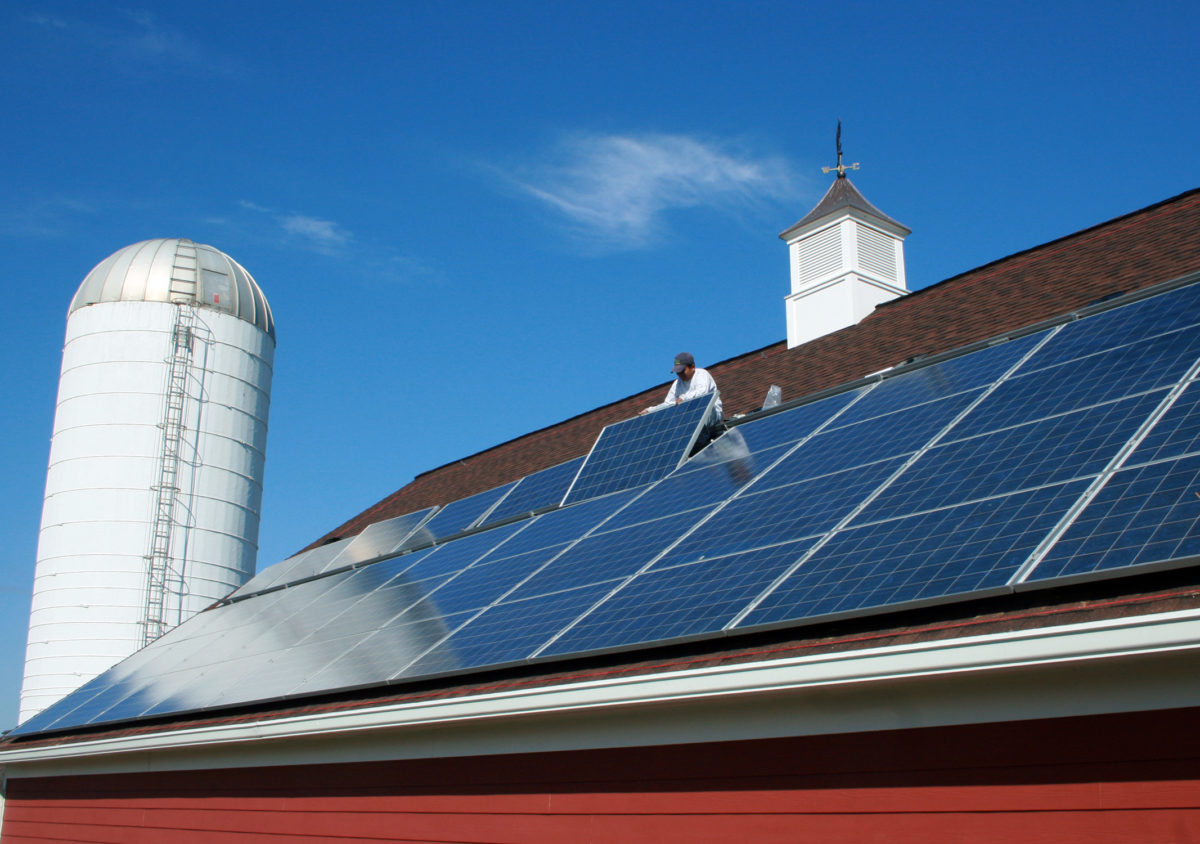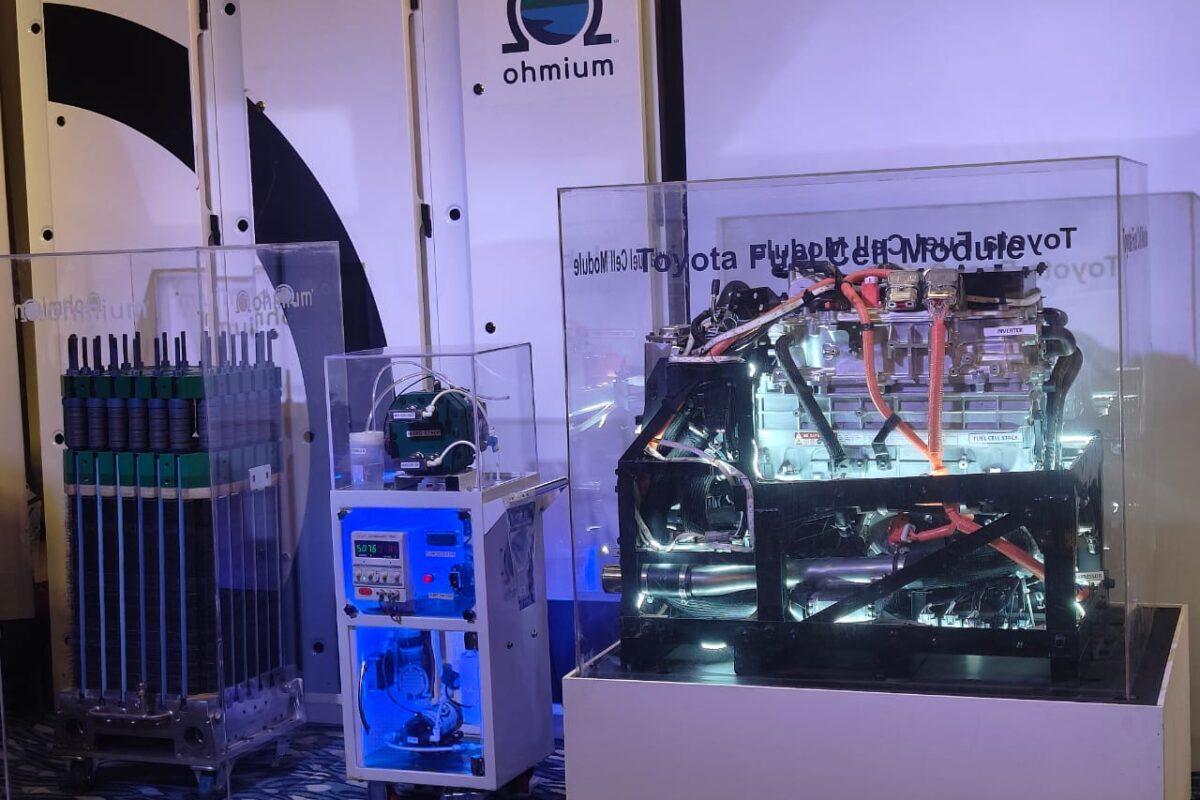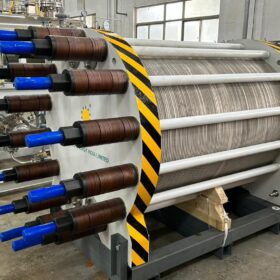In the county of Loudoun, in the U.S. Commonwealth of Virginia, wine is a way of life.
With 40 wineries and tasting rooms in six clusters, Loudoun is a connoisseur’s delight and at the Sunset Hills Vineyard conversation switches from Chardonnay, Viognier and Merlot to India and solar power.
Mike Canney, who owns the business with his wife Diane, is a physicist specializing in optics and supercomputers who started Sunset Hills in 1998 with a three-acre vineyard and now operates five farms and two wineries with around 80 acres of vines.
Mike’s environmental awareness had prompted him to consider renewable energy to power the business and, with neighbors none too keen on the idea of wind turbines dotting the landscape, turned his thoughts to solar. A trip to Rajasthan with National Geographic Travel 11 years ago shaped the couple’s thoughts on clean energy.
Indian inspiration
“During the trip, while learning about the amazing growth in India, I was struck by the country’s challenges of [supplying] adequate power,” Mike told pv magazine in the tasting room of his vineyard. “On return to the U.S., I was looking at solar power equipment and installers and saw the signboard of Green Brilliance, an Indian solar company, near my home. After researching about the company, I decided to try them.”
The first solar system at Sunset Hills – a 35 kW array of 154 Green Brilliance panels coupled with Enphase micro-inverters – was installed in 2010. The 230 W panels, available from the supplier’s U.S. office, were placed on a winery rooftop.
“After the initial installation by Green Brilliance the system had some issues,” said Mike. “We ended up removing and reinstalling the system and replacing about a third of the panels. After that the system performed very well and has been very reliable ever since. With this success, and as our wineries power needs increased we decided to expand the system. In the second phase, we added 91 LG 295 W panels and individual Enphase micro-inverters. This brought the system power up to about 62 kW. Annually, our solar system makes about 80,000 kWh, that is 80% of our annual requirement of 100,000 kWh.”
Free charging
The grid tied Sunset Hills system supplies excess power to the electricity network during daylight hours and offers another side benefit too, thanks to the ingenuity of an employee who suggested a novel way of publicizing the installation.
When the system was operational, in 2011, Mike wanted to showcase the business’ green credentials to customers and an employee suggested inviting electric vehicle owners over on Earth Day (April 22) to charge their cars from the array.
“We invited the Washington DC Tesla owners club out on Earth Day and they were able to charge their cars directly from the sun,” said Mike. “It was a huge hit and we repeated that every year. Two years ago we received a call from Tesla headquarters in California and they asked if we would do this every day of the year, not just on Earth Day. They donated four chargers and paid to install them. Now, Tesla and other electric cars can charge for free every day of the year. Later, Tesla installed four chargers in our second winery also.”
As a result, the Indian-supplied panels are helping solar gain a foothold in a corner of Virginia as the Canneys intend to add 160, 330 W panels at their second winery in Middleburg, VA.
This content is protected by copyright and may not be reused. If you want to cooperate with us and would like to reuse some of our content, please contact: editors@pv-magazine.com.








By submitting this form you agree to pv magazine using your data for the purposes of publishing your comment.
Your personal data will only be disclosed or otherwise transmitted to third parties for the purposes of spam filtering or if this is necessary for technical maintenance of the website. Any other transfer to third parties will not take place unless this is justified on the basis of applicable data protection regulations or if pv magazine is legally obliged to do so.
You may revoke this consent at any time with effect for the future, in which case your personal data will be deleted immediately. Otherwise, your data will be deleted if pv magazine has processed your request or the purpose of data storage is fulfilled.
Further information on data privacy can be found in our Data Protection Policy.